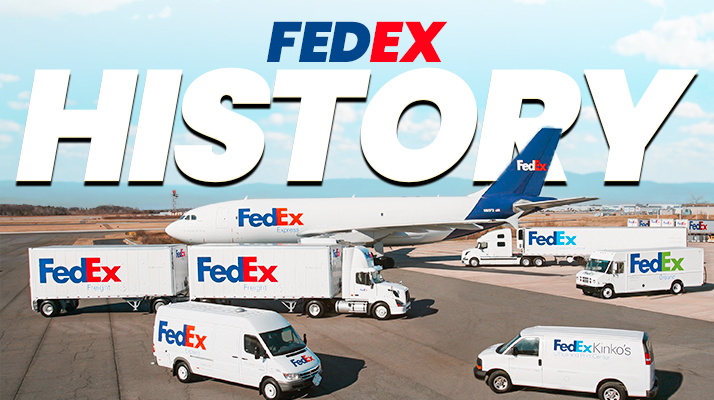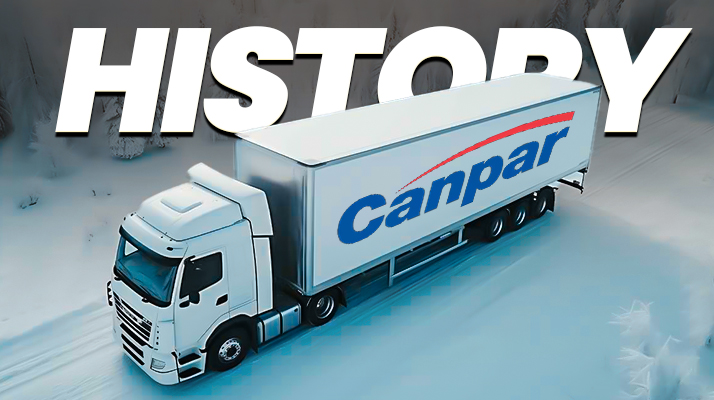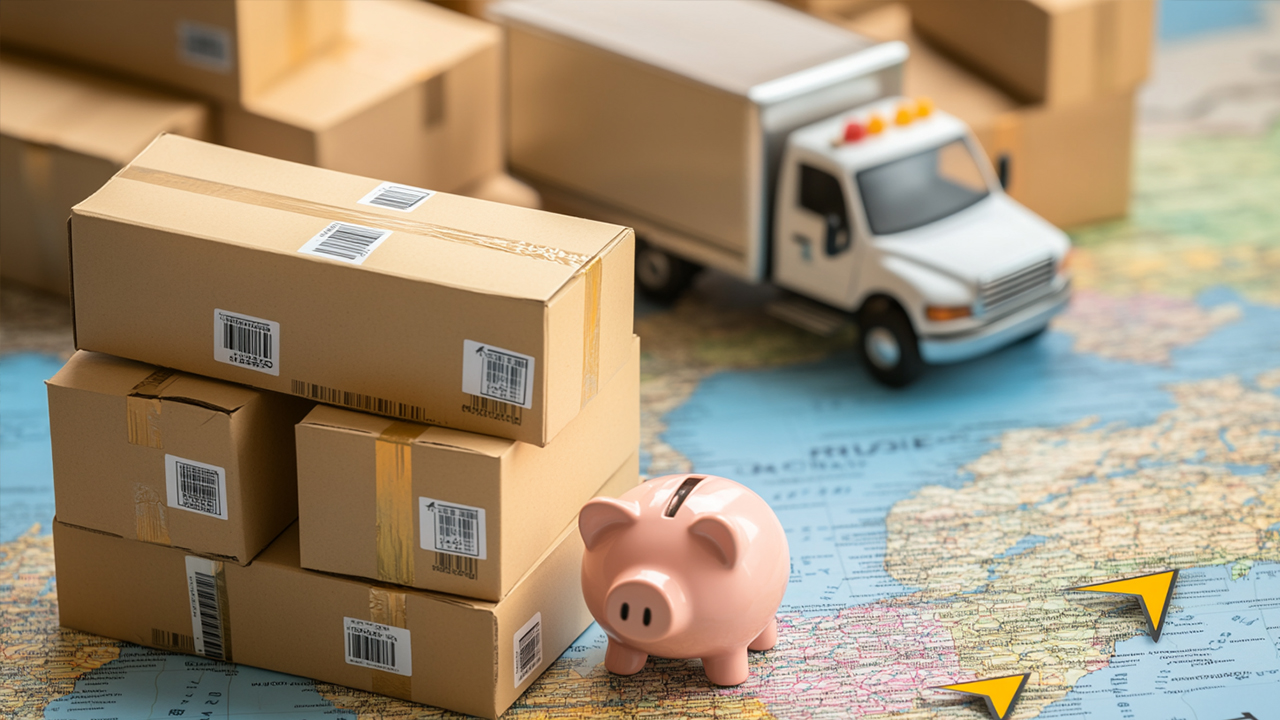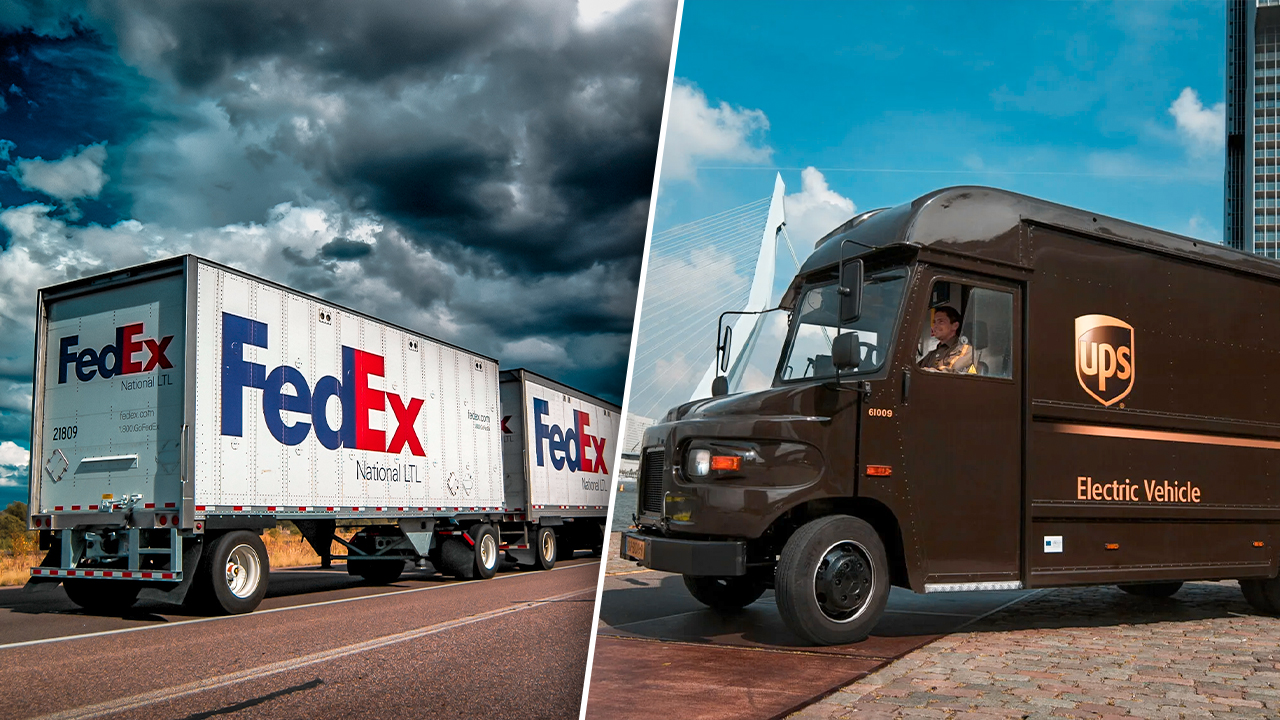What is the history of DHL
What Are the Milestones in DHL's History?
- First International Delivery (1969)
- Introduction of DHL Express (1971)
- Acquisition by Deutsche Post (2002)
- DHL's Role in the Olympics (2008)
How Has DHL Evolved Over Time?
- Technological Advancements
- Expansion of Services
- Corporate Social Responsibility Efforts
DHL is more than just a name in logistics; it represents a pioneering spirit in international shipping.
Founded to meet the growing needs of global trade, DHL has transformed the way we think about delivery services.
This article explores the fascinating history of DHL—its origins, founders, key milestones, and how it has evolved over time.
Discover how a simple idea turned into a global powerhouse in logistics and what sets DHL apart today.
1. What Is DHL?
DHL is a leading global logistics and courier company that specializes in international parcel delivery, express mail, and comprehensive logistics solutions, including freight forwarding and air transport services. Founded in 1969, DHL has established itself as a market leader in the logistics industry, providing vital services that facilitate global trade and meet diverse business requirements. With a robust global network and numerous service centers worldwide, DHL ensures operational efficiency and high-quality customer service, addressing the unique needs of both individuals and businesses seeking reliable delivery services.2. Why Was DHL Created?
DHL was created to address the growing demand for an efficient international shipping company that could streamline parcel delivery and logistics, including customs clearance and air courier services. The founders recognized a significant market opportunity in providing express mail services tailored to global trade requirements, facilitating the rapid transport of shipping documents and goods across borders. With a focus on freight forwarding and customs clearance, DHL aimed to meet the evolving needs of businesses and individuals engaged in international commerce.What Was the Need for an International Shipping Company?
The need for an international shipping company emerged as global trade expanded, requiring more efficient logistics solutions to handle the surge in cross-border transactions and deliveries, which placed unprecedented demands on traditional shipping infrastructures and highlighted the inefficiencies in existing methodologies.Among the driving forces of this rapid demand is the wave of globalization, which has seamlessly interconnected economies worldwide, allowing businesses to expand their market reach beyond geographical boundaries. Various trade agreements have fostered easier commerce between countries, creating a favorable environment for multinational operations.
The rise of e-commerce has transformed consumer behavior, with more individuals opting for online shopping that necessitates swift shipping options. These evolving landscapes not only increased the volume of goods being exchanged internationally but also introduced operational complexities, leading to the necessity for a dedicated shipping service like DHL to effectively manage logistics and assure timely deliveries.
3. When Was DHL Created?
DHL was founded in 1969 by Adrian Dalsey, Larry Hillblom, and Robert Lynn in San Francisco, California, marking a pivotal moment in the evolution of express mail and logistics services. The company started with the simple goal of providing swift delivery of shipping documents between San Francisco and Honolulu, quickly evolving into a major player in the logistics industry. This year laid the cornerstone for DHL's innovative approach to parcel delivery and international logistics.What Was the Original Name of DHL?
The original name of DHL was the initials of its founders: Dalsey, Hillblom, and Lynn, which became synonymous with express mail and logistics services and the core business model of the company.This naming, deeply rooted in the company’s inception, reflects not only the individual contributions of the founders, but also their unified vision for revolutionizing the delivery industry.
Recognizing the burgeoning need for efficient shipping solutions, they laid the foundation for what would grow into a global powerhouse in logistics.
Over the years, the brand underwent various transformations, adapting to technological advancements and shifting market demands. Nonetheless, despite these evolutions, the core identity remained intact, emphasizing speed, reliability, and customer-centricity.
The commitment to these principles is what continues to define this logistics giant today.
Who Were the Founders of DHL?
DHL was co-founded by Adrian Dalsey, Larry Hillblom, and Robert Lynn, who played pivotal roles in establishing the company as a leader in logistics and express delivery.These three visionaries brought together their unique skills and backgrounds to create a revolutionary business model that redefined shipping.
Adrian Dalsey, known for his keen business acumen, emphasized the importance of timely deliveries, shaping the operational strategies that set DHL apart from its competitors. Larry Hillblom's innovative spirit led to ground-breaking logistics solutions, while Robert Lynn’s keen understanding of legal frameworks facilitated seamless international operations.
Together, they envisioned a global network that prioritized efficiency and customer satisfaction, which not only shaped the company's foundational values but also paved the way for its remarkable growth. Their commitment and foresight ensured that DHL would become synonymous with reliability in the logistics industry.
4. Where Was DHL Created and What Are Its Operations?
DHL was created in San Francisco, California, a strategic location that served as the starting point for its innovative logistics solutions aimed at enhancing global trade through efficient parcel delivery and hub distribution.What Was the First Country to Have DHL Services?
The first country to have DHL services, outside of the United States, was Hawaii, where the company established its initial route connecting the mainland to the islands.This innovative route allowed for timely delivery of crucial documents and packages, significantly impacting trade and communication between the islands and the rest of the United States. By bridging this gap, the service facilitated international logistics and set a standard for reliability that would become synonymous with the DHL brand.
The operational framework involved strategic partnerships with local carriers and the use of advanced tracking systems, ensuring that shipments were not only efficient but also secure. This approach not only optimized their service capabilities but also gained the trust of customers who needed dependable shipping solutions.
- Early adoption of tracking technology
- Commitment to customer satisfaction
- Robust logistics network
Such foundational steps were instrumental in shaping DHL's reputation as a dependable international service provider in a rapidly globalizing economy.
How Did DHL Expand Globally?
DHL expanded globally by leveraging strategic hub distribution and operational efficiency to create a vast network of logistics services across continents.In pursuit of domination within the logistics sector, this company has adeptly navigated partnerships with local firms and pursued key acquisitions to bolster its market presence. These collaborations enhance not only its reach but also its operational capabilities, enabling faster and more reliable service delivery.
The implementation of cutting-edge technology has revolutionized its logistics practices, optimizing routes and minimizing delays.
- Strategic alliances provide access to regional expertise.
- Innovative practices improve customer satisfaction and efficiency.
- Acquisitions facilitate the expansion of service offerings.
Through these multifaceted strategies, DHL has undoubtedly cemented its status as a market leader in the international logistics industry.
5. What Are the Milestones in DHL's History and Its Impact on the Logistics Industry?
DHL has achieved several significant milestones in its history, each contributing to its evolution as a leader in international logistics and express delivery services.First International Delivery (1969)
The first international delivery by DHL took place in 1969, marking a groundbreaking moment in the logistics industry and setting the stage for future express mail services.This pioneering venture not only demonstrated the feasibility of swift cross-border shipping but also highlighted the increasing demand for timely delivery in an increasingly interconnected world. The innovation showed how logistics could transcend geographical barriers, facilitating global trade and communication. As a result, many organizations began to rethink their shipping strategies, realizing the potential benefits of rapid service.
- Fast delivery systems became essential, influencing other companies in the transport sector.
- The establishment of standardized processes and tracking systems flourished, enhancing reliability for customers.
- Consequently, DHL evolved its business model to focus on these emerging needs, leading to a broader array of logistics solutions that catered to diverse markets.
The historical significance of that first delivery is felt today, paving the way for a global logistics network that enables businesses to reach international customers with unparalleled efficiency.
Introduction of DHL Express (1971)
In 1971, DHL introduced DHL Express, a dedicated service focused on fast and reliable express delivery, further solidifying its position in the logistics industry.This innovative service not only catered to the increasing demands of businesses for quicker shipping solutions but also improved overall customer satisfaction by ensuring that packages arrived precisely when expected.
As the world rapidly embraced globalization, the introduction of DHL Express marked a pivotal shift, enabling clients to compete effectively in international markets.
- Streamlined operations meant less downtime and more efficient processing.
- Enhanced tracking systems gave customers real-time updates on their shipments.
- Simplified customs clearance allowed for quicker delivery times across borders.
In essence, DHL Express transformed logistics by implementing advanced technology and maintaining a customer-centric approach, satisfying the increasing appetite for expedited shipping services worldwide.
Acquisition by Deutsche Post (2002)
In 2002, DHL was acquired by Deutsche Post, a move that significantly expanded its global network and operational capabilities within the logistics industry, enabling the company to tap into new markets and enhance its infrastructure across various regions.Because of this strategic acquisition, DHL's services witnessed a remarkable transformation, leading to increased efficiency and a broader range of offerings. This integration allowed DHL to streamline its operations, ultimately improving delivery times and customer satisfaction. The consolidation of resources and expertise bolstered the company’s growth potential, positioning it as a dominant player in the global logistics landscape.
- Enhanced supply chain solutions
- Wider scope for e-commerce fulfillment
- Improved customer service capabilities
These developments not only solidified DHL’s market position but also created opportunities for further innovation, allowing the company to stay ahead of competitors in an increasingly demanding industry.
DHL's Role in the Olympics (2008)
DHL played a crucial role in the 2008 Olympics, providing logistics support that showcased its capabilities in managing international shipping and enhancing global trade.In its pivotal involvement, the logistics giant facilitated not just the movement of goods, but also the seamless transportation of athletes and equipment from various corners of the globe. Their extensive network ensured that essential items arrived promptly at venues, enabling smooth operations during this high-pressure event.
DHL’s participation extended beyond mere logistics; they actively engaged in corporate social responsibility initiatives that emphasized sustainability and community support. For example,
- Implementing environmentally-friendly shipping practices
- Supporting local businesses through partnerships
- Contributing to various humanitarian efforts in the host city
Such endeavors not only elevated the event's success but also set a standard within the logistics industry, highlighting the importance of integrating social values into corporate strategies.
6. How Has DHL Evolved Over Time?
DHL has evolved over time by embracing technological advancements, expanding its service offerings, and prioritizing sustainability in its operations.Technological Advancements
Technological advancements have played a crucial role in DHL's evolution, particularly in enhancing its logistics operations and implementing a robust tracking system for improved operational efficiency.As a leader in the logistics industry, the company has embraced various innovative technologies that revolutionize its delivery and handling processes. For instance, the integration of real-time tracking systems allows customers to monitor their shipments at every stage, fostering transparency and trust.
- The development of automated sorting centers has significantly reduced processing times, enabling quicker deliveries.
- DHL has introduced robotech solutions, where smart robots assist in warehouse management, enhancing overall productivity.
- The incorporation of data analytics has aided in optimizing delivery routes, resulting in lower fuel consumption and a smaller carbon footprint.
This commitment to innovation not only streamlines operations but also sets benchmarks for service excellence in the logistics sphere.
Expansion of Services
DHL's expansion of services has been a key factor in its growth, offering a diverse range of international services tailored to meet the needs of various markets while adhering to environmental practices.
As businesses increasingly turn to e-commerce logistics, DHL has stepped up to provide tailored solutions that ensure timely and efficient delivery of products across vast distances. In the realm of freight forwarding, the company has innovated its processes to optimize supply chain management, ensuring that clients receive their goods precisely when needed. Specialized delivery options cater to unique requirements, whether they involve temperature-sensitive items or urgent shipments.
- Commitment to Sustainability:
- Utilizing electric vehicles in urban areas.
- Investing in carbon-neutral shipping alternatives.
- Implementing energy-efficient warehouse solutions.
DHL's dedication to sustainability resonates through its service expansion strategy, demonstrating that growth and environmental responsibility can coexist harmoniously.
Corporate Social Responsibility Efforts
DHL has committed to corporate social responsibility through initiatives like GoGreen, GoHelp, and GoTeach, aiming to reduce its carbon footprint and positively impact communities worldwide.This commitment reflects the company’s determination to lead the logistics industry towards a more sustainable future.
These initiatives encompass:
- GoGreen: Focusing on minimizing environmental impact via sustainable practices and logistics solutions.
- GoHelp: Providing aid during disasters and supporting humanitarian efforts globally.
- GoTeach: Engaging with local communities to enable youth through education and training programs.
Through these programs, DHL strives not only to meet its environmental goals but also to foster a sense of responsibility and community engagement, making a lasting impact.







